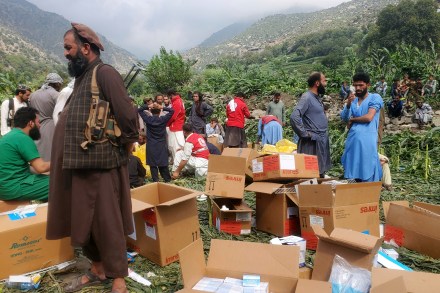Thousands have been killed and injured in Afghanistan this week after a series of devastating earthquakes — leaving rescuers scrambling through mountainous terrain amid harsh weather. More than 6,700 homes were destroyed across the eastern districts and international agencies have highlighted a critical need for funds, food, medical supplies and shelter. Strict gender rules imposed by the Taliban government have also complicated the situation — with women largely ignored by aid workers.
“It felt like women were invisible. The men and children were treated first, but the women were sitting apart, waiting for care,” a rescuer told the New York Times.
Trapped and injured women were often left below the rubble of collapsed buildings — with rescuers waiting for other women to reach the site and dig them out. Volunteer Tahzeebullah Muhazeb also told the publication that members of his all-male medical team had been hesitant to help women victims. Rescue workers also resorted to dragging dead women out by their clothes (to avoid making skin contact) if no male relatives were present.
What is the law in Afghanistan?
Official Taliban policies forbit all physical contact between unrelated men and women — irrespective of the circumstances. By extention male rescuers are also not allowed to touch female victims if they are not immediate family members. Both the laws and societal norms have forced female victims to wait for female rescuers or male relatives over the past few years — often causing dangerous delays during emergencies.
Female rescuers are also in extremely short supply due to Taliban restrictions on women working publicly or pursuing any sort of higher education. Policies introduced by the Afghan government have led to a drastic fall in women healthcare workers since 2021. Others fled the country or left their jobs due to harsh restrictions, harassment, and threats. There have been multiple incidents reported since the Taliban returned to power in Afghanistan four years ago that saw women suffer disproportionately due to government policy.
Funding crisis
Rescue and relief efforts have also been hindered by a looming funding gap that threatens to delay critical activities. The World Health Organisation also issued a statement warning about the growing risk of disease — stemming from overcrowded shelters, unsafe water and inappropriate waste management. An influx of Afghans recently deported from Pakistan have also strained the fragile healthcare system in Afghanistan.
